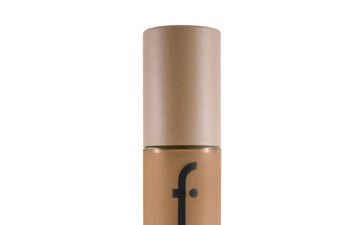Worried about gaining weight this Festive Season? 6 Tips To Help Navigate the Food Noise
I’m a psychologist, and this is why you could never say no to festive treats!
Words by Anne-Gaelle Courouble, Allurion’s Expert Psychologist

They say you feast with your eyes, but Allurion research revealed most of us are getting an ear full thanks to the ‘Food Noise’ phenomenon. It is not your fault if you can’t resist the biscuit tin! This intrusive barrage of thoughts nudging you towards eating even when you’re full often has a detrimental effect on people’s work, family, social lives, and weight loss efforts.
Food noise is fueled by different factors, including unhelpful thought patterns about your eating habits and choices that make you feel like you need to restrict your eating or feel guilty and increased emotional triggers, such as stress. This can prompt you to overeat and make unhealthy food choices driven by what’s around you but also to think obsessively about your next snack or meal, even when you feel satiated. Interestingly, food noise volume has been shown to get louder while you’re dieting, particularly in the early days, making it harder to limit food intake. It forces people to eat when they aren’t physically hungry, with many blaming themselves for doing so.

But don’t worry; there are multiple ways to turn down the Food Noise volume, many of which can be incorporated into your daily lives.
First, let’s start with the premise that you can eat anything. Nothing is off-limits. So when thoughts of food flood your mind, stop telling yourself you can’t have it because prohibition automatically increases desire. We only need to consider when and how much we can eat. To explain this idea, I often use a practical example. Have you tried typing “I do not want a pink car” into Google? What is the result? Exactly, pink cars. Similarly, our brains respond when we constantly repeat phrases like “I can’t eat,” “I can’t be hungry,” and “Chocolate is off limits.” It works as a constant reminder. Other examples are seen in restrictions during pregnancy or before a surgical procedure, which always increases the desire to consume those foods. Prohibition will work as an enhancer for the desire to eat.
My main advice to control when and how much we eat is to ask when it is worth eating what you desire. So you have accepted that you CAN eat it, but you plan for when that moment will be. If you start to think this way, the focus shifts from the food to the plan itself. For example, if I want to eat chocolate in the morning, I could postpone it to coffee or snack time, within a suitable setting with colleagues or family, in an appropriate portion. Delaying it reduces anxiety and allows for controlled consumption.
Another handy hack is to change the Food Noise dialogue. Instead of allowing it to talk at you and continually hijack your trail of thought, try opening up a conversation to create a series of healthier and more compassionate mantras.
It’s also important to stop feeling guilty. Understand that many factors are involved in weight gain (lack of sleep, emotions, sedentary lifestyle, etc.) and that not everything happens on the plate. Understanding that food meets physiological and emotional needs allows us to eat everything in the right quantities without feeling guilty. The result is a calmer mind and less Food Noise.
Engaging in mindfulness practices can also help turn down the volume. You can do this by focusing on the present moment and acknowledging thoughts and sensations without judgment. This can help identify emotional triggers, accept the moment’s emotion, stop “eating” it, and then put you back in control.
Finally, planning meals and snacks can help prevent excessive physical hunger and sudden cravings that can increase food noise. It also lets you feel more in control of your eating, reducing the stress and guilt associated with spontaneous food choices.

Additionally, research shows that the Allurion Program effectively quietens food noise by helping reduce grazing, emotional eating, and sugar cravings[1]. It achieves this through the procedure gastric balloon, which takes up over half of your stomach space, helping you to feel fuller for longer. It also reduces your portion sizes and appetite and enables you to control cravings that often come with traditional dieting.
The balloon stays in your stomach for approximately four months. During this time, your well-being team – consisting of medics, nutritionists, and psychologists – works with you to re-engineer your eating habits, learn to recognize triggers, and develop strategies to deal with them. Its new 24/7 AI-powered weight loss coach helps create a bespoke strategy that will help keep food noise at bay.
The Allurion Program helps people to reduce physical hunger, acting on hunger and satiety pathways in three different and complementary ways:
- Delays food emptying from the stomach by around two hours, meaning once you’ve eaten, you’ll feel full for longer
- Takes up space: With more than half a liter of fluid in the stomach at all times, the volume available to fill with food is decreased, so you eat smaller portions and feel full quicker
- Stimulates the vagus nerve: Stomach distension stimulates gastric receptors, which results in vagal nerve stimulation that communicates to receptors in the brain to tell your body that you are feeling full

By helping to ease both the physical and mental barriers of weight loss, the Allurion Program turns down the food noise dial. Patients are likely to eat less and are empowered to dedicate their brain space to other things, meaning they can take back control of their lives for good.
For more information, please visit allurion.com








